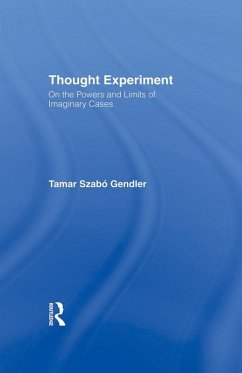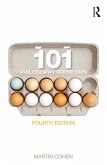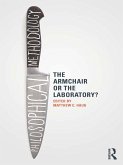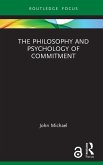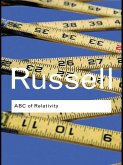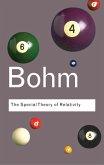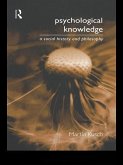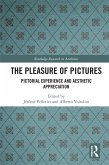50,95 €
50,95 €
inkl. MwSt.
Sofort per Download lieferbar

25 °P sammeln
50,95 €
Als Download kaufen

50,95 €
inkl. MwSt.
Sofort per Download lieferbar

25 °P sammeln
Jetzt verschenken
Alle Infos zum eBook verschenken
50,95 €
inkl. MwSt.
Sofort per Download lieferbar
Alle Infos zum eBook verschenken

25 °P sammeln
- Format: ePub
- Merkliste
- Auf die Merkliste
- Bewerten Bewerten
- Teilen
- Produkt teilen
- Produkterinnerung
- Produkterinnerung

Bitte loggen Sie sich zunächst in Ihr Kundenkonto ein oder registrieren Sie sich bei
bücher.de, um das eBook-Abo tolino select nutzen zu können.
Hier können Sie sich einloggen
Hier können Sie sich einloggen
Sie sind bereits eingeloggt. Klicken Sie auf 2. tolino select Abo, um fortzufahren.

Bitte loggen Sie sich zunächst in Ihr Kundenkonto ein oder registrieren Sie sich bei bücher.de, um das eBook-Abo tolino select nutzen zu können.
This book offers a novel analysis of the widely-used but ill-understood technique of thought experiment. The author argues that the powers and limits of this methodology can be traced to the fact that when the contemplation of an imaginary scenario brings us to new knowledge, it does so by forcing us to make sense of exceptional cases.
- Geräte: eReader
- mit Kopierschutz
- eBook Hilfe
- Größe: 1.07MB
Andere Kunden interessierten sich auch für
![101 Philosophy Problems (eBook, ePUB) 101 Philosophy Problems (eBook, ePUB)]() Martin Cohen101 Philosophy Problems (eBook, ePUB)24,95 €
Martin Cohen101 Philosophy Problems (eBook, ePUB)24,95 €![Philosophical Methodology: The Armchair or the Laboratory? (eBook, ePUB) Philosophical Methodology: The Armchair or the Laboratory? (eBook, ePUB)]() Philosophical Methodology: The Armchair or the Laboratory? (eBook, ePUB)50,95 €
Philosophical Methodology: The Armchair or the Laboratory? (eBook, ePUB)50,95 €![The Philosophy and Psychology of Commitment (eBook, ePUB) The Philosophy and Psychology of Commitment (eBook, ePUB)]() John MichaelThe Philosophy and Psychology of Commitment (eBook, ePUB)0,00 €
John MichaelThe Philosophy and Psychology of Commitment (eBook, ePUB)0,00 €![ABC of Relativity (eBook, ePUB) ABC of Relativity (eBook, ePUB)]() Bertrand RussellABC of Relativity (eBook, ePUB)11,95 €
Bertrand RussellABC of Relativity (eBook, ePUB)11,95 €![The Special Theory of Relativity (eBook, ePUB) The Special Theory of Relativity (eBook, ePUB)]() David BohmThe Special Theory of Relativity (eBook, ePUB)11,95 €
David BohmThe Special Theory of Relativity (eBook, ePUB)11,95 €![Psychological Knowledge (eBook, ePUB) Psychological Knowledge (eBook, ePUB)]() Martin KuschPsychological Knowledge (eBook, ePUB)49,95 €
Martin KuschPsychological Knowledge (eBook, ePUB)49,95 €![The Pleasure of Pictures (eBook, ePUB) The Pleasure of Pictures (eBook, ePUB)]() The Pleasure of Pictures (eBook, ePUB)44,95 €
The Pleasure of Pictures (eBook, ePUB)44,95 €-
-
-
This book offers a novel analysis of the widely-used but ill-understood technique of thought experiment. The author argues that the powers and limits of this methodology can be traced to the fact that when the contemplation of an imaginary scenario brings us to new knowledge, it does so by forcing us to make sense of exceptional cases.
Dieser Download kann aus rechtlichen Gründen nur mit Rechnungsadresse in A, B, BG, CY, CZ, D, DK, EW, E, FIN, F, GR, HR, H, IRL, I, LT, L, LR, M, NL, PL, P, R, S, SLO, SK ausgeliefert werden.
Produktdetails
- Produktdetails
- Verlag: Taylor & Francis eBooks
- Seitenzahl: 280
- Erscheinungstermin: 14. Januar 2014
- Englisch
- ISBN-13: 9781135706937
- Artikelnr.: 40343643
- Verlag: Taylor & Francis eBooks
- Seitenzahl: 280
- Erscheinungstermin: 14. Januar 2014
- Englisch
- ISBN-13: 9781135706937
- Artikelnr.: 40343643
- Herstellerkennzeichnung Die Herstellerinformationen sind derzeit nicht verfügbar.
Tamar Szabo Gendler is at Syracuse University
Preface
Revisions Made
Summary of Contents
Chapter 1-Introduction
Chapter 2-Galileo (First Case Study)
Chapter 3-The Ship of Theseus (Second Case Study)
Chapter 4-Personal Identity (Third Case Study)
Chapter 5-Conclusion
Acknowledgements
1. Introduction
1.1 Exceptional Cases
1.1.1Characterization of Exceptional Case
1.1.1.1 Exceptional Cases in Theories with Privileged Characteristics
1.1.1.2 Exceptional Cases in Theories without Privileged Characteristcs
1.1.2 Ways of Accounting for Exceptional Cases
1.1.3 Patterns of Accounting
1.1.4 Application to the Question at Hand
1.2 Imaginary Cases
1.3 Thought Experiments
1.3.1 What is a Thought Experiment?
1.3.2 The Tripartite Structure of Thought Experiments
1.3.3 Three Sorts of Thought Experiments
1.4 Appendix to Chapter 1
2. Galileo
2.1 Argumentative Reconstruction
2.1.1 The Elimination Thesis
2.1.2 Clarification of Terminology
2.1.3 The Negative Argument and the Positive Argument
2.1.4 The Dispensability Thesis and the Derivativity Thesis
2.2 Galileo's Thought Experiment and its Reconstruction
2.2.1 Galileo's Thought Experiment
2.2.2 Reconstruction of the Galileo Case
2.2.3 Four Ways out for the Aristtelian
2.2.4 What the Reconstruction Misses
2.3 Denying the Dispensability and Derivativity Theses
2.3.1 Rejecting Reconstruction: What the Thought Experiment Does
2.3.2 rejecting the Positive Argument: What Makes these Beliefs New?
2.3.3 Rejecting the Negative Argument: What Makes these Beliefs Knowledge?
2.3.4 Constructivism and the Contrast with Norton and Brown
2.4 Conclusion
3. Theseus
3.1 Conceptual Thought Experiments
3.2 The Story
3.3 The Puzzle
3.4 Is the Ship of Theseus an Exceptional Case?
3.4.1 Automatic and Specially-Secured Identity
3.4.2 Organisms, Artifacts, and Exceptional Cases
3.5 Attempts to Dissolve the Problem
3.5.1 Van Inwagen
3.5.1.1 Identity Under a Sortal
3.5.1.2 Summary
3.5.2 Parfit
3.6 Attempts to Solve the Problem
3.6.1 A Traditional Solution: Hirsch
3.6.2 A Meta-solution: Nozick
3.7 The Proposed Diagnosis
3.7.1 Some Very General Candidate Principles
3.7.2 Remarks on the Candidates
3.7.3 A Messier Puzzle
3.7.4 The Proposed Diagnosis
4. Personal Identity
4.1 Introduction: The Facts of Life
4. 2 Setting the Stage
4.2.1 A Context for parfit's Argument
4.2.2 What Fission Might Show
4.3 The Argument and its Crucial Assumptions
4.3.1 Parfit's Fission Argument
4.3.2 Four Crucial Distinctions
4.3.3 Comments on these Distinctions
4.3.4 The Intrinsicness Premise
4.3.5 Summary
4.4 Two Unsuccessful Strategies
4.4.1 An Unsuccefful Attack on the Intrinsicness Premise
4.4.2 An Unsuccessful Defense of the Intrinsicness Premise
4.5 Why is the Fission Argument so Compelling?
4.5.1 The Casewise Explanatory Difference Principle
4.5.2 The Casewise Explanatory Principle and the Method of Agreement
4.5.3 Fission and the Method of Agreement
4.6 How Absent Features can be Explanatory
4.6.1 Human Bodies and Borrowed Luster
4.6.2 Explaining Valuation
4.6.3 Exceptions, Norms and Local Adaptation
4.6.4 Prudential Concern in a World of Fission
4.7 Conclusion
4.7.1 Summary
4.7.2 Larger Lessons
5. Conclusion
5.1 Factive Thought Experiments: Galileo
5.2 Conceptual Thought Experiments: The Ship of Theseus
5.3 Valuational Thought Experiments: Personal Identity
6. Bibliographies
6.1 Bibliography of Works Cited
6.2 Bibliography on Galileo, Experiment and Thought Experiment
6.3 Bibliography on Personal Identity and Identity
6.4 Bibliography on Thought Experiment and Experiment
Index
Revisions Made
Summary of Contents
Chapter 1-Introduction
Chapter 2-Galileo (First Case Study)
Chapter 3-The Ship of Theseus (Second Case Study)
Chapter 4-Personal Identity (Third Case Study)
Chapter 5-Conclusion
Acknowledgements
1. Introduction
1.1 Exceptional Cases
1.1.1Characterization of Exceptional Case
1.1.1.1 Exceptional Cases in Theories with Privileged Characteristics
1.1.1.2 Exceptional Cases in Theories without Privileged Characteristcs
1.1.2 Ways of Accounting for Exceptional Cases
1.1.3 Patterns of Accounting
1.1.4 Application to the Question at Hand
1.2 Imaginary Cases
1.3 Thought Experiments
1.3.1 What is a Thought Experiment?
1.3.2 The Tripartite Structure of Thought Experiments
1.3.3 Three Sorts of Thought Experiments
1.4 Appendix to Chapter 1
2. Galileo
2.1 Argumentative Reconstruction
2.1.1 The Elimination Thesis
2.1.2 Clarification of Terminology
2.1.3 The Negative Argument and the Positive Argument
2.1.4 The Dispensability Thesis and the Derivativity Thesis
2.2 Galileo's Thought Experiment and its Reconstruction
2.2.1 Galileo's Thought Experiment
2.2.2 Reconstruction of the Galileo Case
2.2.3 Four Ways out for the Aristtelian
2.2.4 What the Reconstruction Misses
2.3 Denying the Dispensability and Derivativity Theses
2.3.1 Rejecting Reconstruction: What the Thought Experiment Does
2.3.2 rejecting the Positive Argument: What Makes these Beliefs New?
2.3.3 Rejecting the Negative Argument: What Makes these Beliefs Knowledge?
2.3.4 Constructivism and the Contrast with Norton and Brown
2.4 Conclusion
3. Theseus
3.1 Conceptual Thought Experiments
3.2 The Story
3.3 The Puzzle
3.4 Is the Ship of Theseus an Exceptional Case?
3.4.1 Automatic and Specially-Secured Identity
3.4.2 Organisms, Artifacts, and Exceptional Cases
3.5 Attempts to Dissolve the Problem
3.5.1 Van Inwagen
3.5.1.1 Identity Under a Sortal
3.5.1.2 Summary
3.5.2 Parfit
3.6 Attempts to Solve the Problem
3.6.1 A Traditional Solution: Hirsch
3.6.2 A Meta-solution: Nozick
3.7 The Proposed Diagnosis
3.7.1 Some Very General Candidate Principles
3.7.2 Remarks on the Candidates
3.7.3 A Messier Puzzle
3.7.4 The Proposed Diagnosis
4. Personal Identity
4.1 Introduction: The Facts of Life
4. 2 Setting the Stage
4.2.1 A Context for parfit's Argument
4.2.2 What Fission Might Show
4.3 The Argument and its Crucial Assumptions
4.3.1 Parfit's Fission Argument
4.3.2 Four Crucial Distinctions
4.3.3 Comments on these Distinctions
4.3.4 The Intrinsicness Premise
4.3.5 Summary
4.4 Two Unsuccessful Strategies
4.4.1 An Unsuccefful Attack on the Intrinsicness Premise
4.4.2 An Unsuccessful Defense of the Intrinsicness Premise
4.5 Why is the Fission Argument so Compelling?
4.5.1 The Casewise Explanatory Difference Principle
4.5.2 The Casewise Explanatory Principle and the Method of Agreement
4.5.3 Fission and the Method of Agreement
4.6 How Absent Features can be Explanatory
4.6.1 Human Bodies and Borrowed Luster
4.6.2 Explaining Valuation
4.6.3 Exceptions, Norms and Local Adaptation
4.6.4 Prudential Concern in a World of Fission
4.7 Conclusion
4.7.1 Summary
4.7.2 Larger Lessons
5. Conclusion
5.1 Factive Thought Experiments: Galileo
5.2 Conceptual Thought Experiments: The Ship of Theseus
5.3 Valuational Thought Experiments: Personal Identity
6. Bibliographies
6.1 Bibliography of Works Cited
6.2 Bibliography on Galileo, Experiment and Thought Experiment
6.3 Bibliography on Personal Identity and Identity
6.4 Bibliography on Thought Experiment and Experiment
Index
Preface
Revisions Made
Summary of Contents
Chapter 1-Introduction
Chapter 2-Galileo (First Case Study)
Chapter 3-The Ship of Theseus (Second Case Study)
Chapter 4-Personal Identity (Third Case Study)
Chapter 5-Conclusion
Acknowledgements
1. Introduction
1.1 Exceptional Cases
1.1.1Characterization of Exceptional Case
1.1.1.1 Exceptional Cases in Theories with Privileged Characteristics
1.1.1.2 Exceptional Cases in Theories without Privileged Characteristcs
1.1.2 Ways of Accounting for Exceptional Cases
1.1.3 Patterns of Accounting
1.1.4 Application to the Question at Hand
1.2 Imaginary Cases
1.3 Thought Experiments
1.3.1 What is a Thought Experiment?
1.3.2 The Tripartite Structure of Thought Experiments
1.3.3 Three Sorts of Thought Experiments
1.4 Appendix to Chapter 1
2. Galileo
2.1 Argumentative Reconstruction
2.1.1 The Elimination Thesis
2.1.2 Clarification of Terminology
2.1.3 The Negative Argument and the Positive Argument
2.1.4 The Dispensability Thesis and the Derivativity Thesis
2.2 Galileo's Thought Experiment and its Reconstruction
2.2.1 Galileo's Thought Experiment
2.2.2 Reconstruction of the Galileo Case
2.2.3 Four Ways out for the Aristtelian
2.2.4 What the Reconstruction Misses
2.3 Denying the Dispensability and Derivativity Theses
2.3.1 Rejecting Reconstruction: What the Thought Experiment Does
2.3.2 rejecting the Positive Argument: What Makes these Beliefs New?
2.3.3 Rejecting the Negative Argument: What Makes these Beliefs Knowledge?
2.3.4 Constructivism and the Contrast with Norton and Brown
2.4 Conclusion
3. Theseus
3.1 Conceptual Thought Experiments
3.2 The Story
3.3 The Puzzle
3.4 Is the Ship of Theseus an Exceptional Case?
3.4.1 Automatic and Specially-Secured Identity
3.4.2 Organisms, Artifacts, and Exceptional Cases
3.5 Attempts to Dissolve the Problem
3.5.1 Van Inwagen
3.5.1.1 Identity Under a Sortal
3.5.1.2 Summary
3.5.2 Parfit
3.6 Attempts to Solve the Problem
3.6.1 A Traditional Solution: Hirsch
3.6.2 A Meta-solution: Nozick
3.7 The Proposed Diagnosis
3.7.1 Some Very General Candidate Principles
3.7.2 Remarks on the Candidates
3.7.3 A Messier Puzzle
3.7.4 The Proposed Diagnosis
4. Personal Identity
4.1 Introduction: The Facts of Life
4. 2 Setting the Stage
4.2.1 A Context for parfit's Argument
4.2.2 What Fission Might Show
4.3 The Argument and its Crucial Assumptions
4.3.1 Parfit's Fission Argument
4.3.2 Four Crucial Distinctions
4.3.3 Comments on these Distinctions
4.3.4 The Intrinsicness Premise
4.3.5 Summary
4.4 Two Unsuccessful Strategies
4.4.1 An Unsuccefful Attack on the Intrinsicness Premise
4.4.2 An Unsuccessful Defense of the Intrinsicness Premise
4.5 Why is the Fission Argument so Compelling?
4.5.1 The Casewise Explanatory Difference Principle
4.5.2 The Casewise Explanatory Principle and the Method of Agreement
4.5.3 Fission and the Method of Agreement
4.6 How Absent Features can be Explanatory
4.6.1 Human Bodies and Borrowed Luster
4.6.2 Explaining Valuation
4.6.3 Exceptions, Norms and Local Adaptation
4.6.4 Prudential Concern in a World of Fission
4.7 Conclusion
4.7.1 Summary
4.7.2 Larger Lessons
5. Conclusion
5.1 Factive Thought Experiments: Galileo
5.2 Conceptual Thought Experiments: The Ship of Theseus
5.3 Valuational Thought Experiments: Personal Identity
6. Bibliographies
6.1 Bibliography of Works Cited
6.2 Bibliography on Galileo, Experiment and Thought Experiment
6.3 Bibliography on Personal Identity and Identity
6.4 Bibliography on Thought Experiment and Experiment
Index
Revisions Made
Summary of Contents
Chapter 1-Introduction
Chapter 2-Galileo (First Case Study)
Chapter 3-The Ship of Theseus (Second Case Study)
Chapter 4-Personal Identity (Third Case Study)
Chapter 5-Conclusion
Acknowledgements
1. Introduction
1.1 Exceptional Cases
1.1.1Characterization of Exceptional Case
1.1.1.1 Exceptional Cases in Theories with Privileged Characteristics
1.1.1.2 Exceptional Cases in Theories without Privileged Characteristcs
1.1.2 Ways of Accounting for Exceptional Cases
1.1.3 Patterns of Accounting
1.1.4 Application to the Question at Hand
1.2 Imaginary Cases
1.3 Thought Experiments
1.3.1 What is a Thought Experiment?
1.3.2 The Tripartite Structure of Thought Experiments
1.3.3 Three Sorts of Thought Experiments
1.4 Appendix to Chapter 1
2. Galileo
2.1 Argumentative Reconstruction
2.1.1 The Elimination Thesis
2.1.2 Clarification of Terminology
2.1.3 The Negative Argument and the Positive Argument
2.1.4 The Dispensability Thesis and the Derivativity Thesis
2.2 Galileo's Thought Experiment and its Reconstruction
2.2.1 Galileo's Thought Experiment
2.2.2 Reconstruction of the Galileo Case
2.2.3 Four Ways out for the Aristtelian
2.2.4 What the Reconstruction Misses
2.3 Denying the Dispensability and Derivativity Theses
2.3.1 Rejecting Reconstruction: What the Thought Experiment Does
2.3.2 rejecting the Positive Argument: What Makes these Beliefs New?
2.3.3 Rejecting the Negative Argument: What Makes these Beliefs Knowledge?
2.3.4 Constructivism and the Contrast with Norton and Brown
2.4 Conclusion
3. Theseus
3.1 Conceptual Thought Experiments
3.2 The Story
3.3 The Puzzle
3.4 Is the Ship of Theseus an Exceptional Case?
3.4.1 Automatic and Specially-Secured Identity
3.4.2 Organisms, Artifacts, and Exceptional Cases
3.5 Attempts to Dissolve the Problem
3.5.1 Van Inwagen
3.5.1.1 Identity Under a Sortal
3.5.1.2 Summary
3.5.2 Parfit
3.6 Attempts to Solve the Problem
3.6.1 A Traditional Solution: Hirsch
3.6.2 A Meta-solution: Nozick
3.7 The Proposed Diagnosis
3.7.1 Some Very General Candidate Principles
3.7.2 Remarks on the Candidates
3.7.3 A Messier Puzzle
3.7.4 The Proposed Diagnosis
4. Personal Identity
4.1 Introduction: The Facts of Life
4. 2 Setting the Stage
4.2.1 A Context for parfit's Argument
4.2.2 What Fission Might Show
4.3 The Argument and its Crucial Assumptions
4.3.1 Parfit's Fission Argument
4.3.2 Four Crucial Distinctions
4.3.3 Comments on these Distinctions
4.3.4 The Intrinsicness Premise
4.3.5 Summary
4.4 Two Unsuccessful Strategies
4.4.1 An Unsuccefful Attack on the Intrinsicness Premise
4.4.2 An Unsuccessful Defense of the Intrinsicness Premise
4.5 Why is the Fission Argument so Compelling?
4.5.1 The Casewise Explanatory Difference Principle
4.5.2 The Casewise Explanatory Principle and the Method of Agreement
4.5.3 Fission and the Method of Agreement
4.6 How Absent Features can be Explanatory
4.6.1 Human Bodies and Borrowed Luster
4.6.2 Explaining Valuation
4.6.3 Exceptions, Norms and Local Adaptation
4.6.4 Prudential Concern in a World of Fission
4.7 Conclusion
4.7.1 Summary
4.7.2 Larger Lessons
5. Conclusion
5.1 Factive Thought Experiments: Galileo
5.2 Conceptual Thought Experiments: The Ship of Theseus
5.3 Valuational Thought Experiments: Personal Identity
6. Bibliographies
6.1 Bibliography of Works Cited
6.2 Bibliography on Galileo, Experiment and Thought Experiment
6.3 Bibliography on Personal Identity and Identity
6.4 Bibliography on Thought Experiment and Experiment
Index
